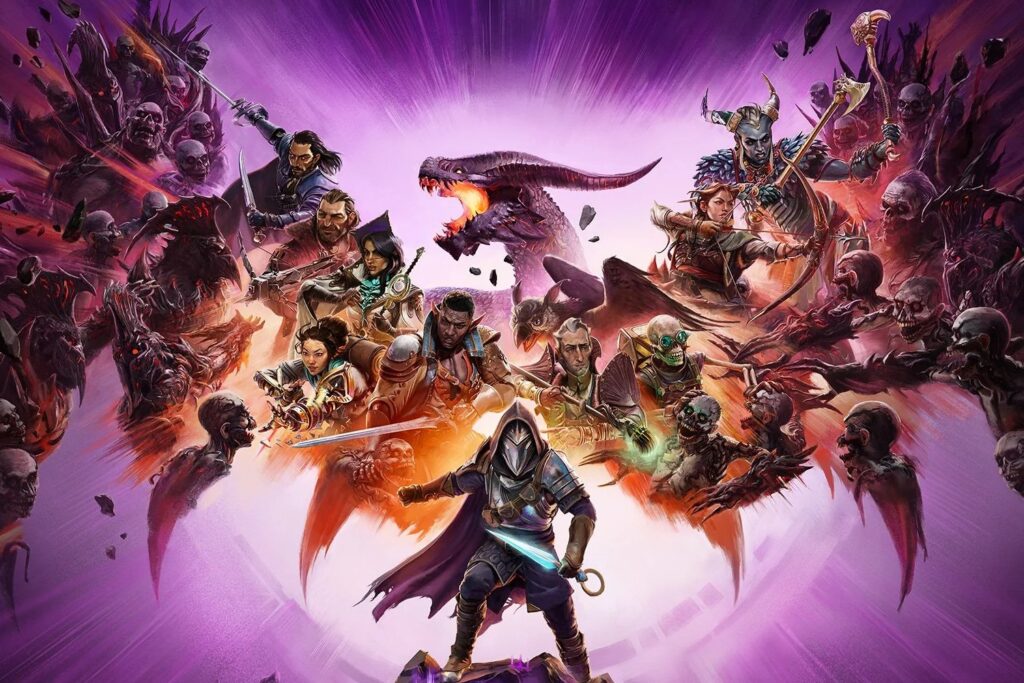BioWare’s Dragon Age: The Veilguard has been out for less than a year—less than half a year, even—and already, EA’s looking to wipe its hands of the game. The fantasy-RPG drew in 1.5 million players, half of what the publisher was expecting. Since no DLC was confirmed ahead of release and the game was one of two sizable misses for its recent financial quarter, EA split up the game’s team: some are working at other internal EA studios, others have been laid off entirely. As the fifth Mass Effect enters pre-production, the fantasy series is effectively on ice, not unlike its sibling franchise almost a decade ago.
The entire situation hasn’t exactly been great for fans of the franchise, the game, and BioWare overall. Further complicating issues is how EA is talking about it. Veilguard wasn’t the publisher’s biggest dud this past quarter, it was EA Sports FC 25, whose developer seems to have faced no reprisals for missing sales targets. In the eyes of CEO Andrew Wilson, Veilguard “failed to resonate with a broad audience” because it lacked live-service elements. Prior iterations of it were more focused on live-service, but Anthem’s failed rework was enough for BioWare to strong-arm EA into letting the next Dragon Age be a strictly single-player affair. That the studio pivoted the project from a multiplayer affair into what’s on storefronts now has been considered an impressive feat by staff, particularly when other comments indicate Veilguard didn’t get as much resources as EA’s sports games.

Compared to earlier Dragon Age games, Veilguard’s 1.5 million straddles an odd line: Dragon Age: Origins sold 3.2 million copies in a handful of months, and 2011’s Dragon Age II sold over two million copies within two months. The biggest outlier is 2014’s Dragon Age: Inquisition, which performed above expectations and as of late 2024, has reportedly sold 12 million copies in the past decade. All three games had a healthy two or three-year gap between them, and Inquisition’s big success was thanks to key factors like releasing close to then-new consoles like the PlayStation 4 and Xbox One and having a massive marketing push behind it. But numbers are all that matter to EA, and there was no world in which Veilguard was going to be a big moneymaker unless it came out a few years after its predecessor.
In an ideal world, everyone at BioWare likely would’ve preferred a single-player Veilguard release much sooner than it had. Starting out as a live-service project did it no favors, as those types of games have notoriously become timesinks. They’re also not what a studio like this is known for, hence longtime fans crying foul when co-op was introduced into Mass Effect 3 and Anthem was revealed. Between the two, audiences especially didn’t take to Anthem, which has since gained a reputation for what it could’ve been rather than what it was. Whatever potential it had, it always feels like it would’ve been better served as a solo game with co-op as a bonus rather than a co-op game that happens to let players go solo. Not every game can hit that balance, but those that do have been all the better for it. Years later, it remains frustrating that Borderlands is one of a handful of titles, franchise or otherwise, that fully understands this.
Publishers want ongoing multiplayer games for the revenue, but sacrificing single-player has proven to be an uneven tradeoff. Single-player games aren’t continuous money drivers like a Fortnite or Grand Theft Auto Online, but they’re something arguably more important: reliable. Online games live and die on post-launch changes and players willing to stick with it, and should one of those pillars fall, the game is a goner. Look no further than the deluge of live-service titles cast aside or shut down in the past two years, from the soon-to-end MultiVersus and Resident Evil Re: Verse to Blue Protocol, Marvel’s Avengers, and countless others. Take a gander at PlayStation actively torching various projects it had in production before Concord was violently (and maybe a bit unfairly) rejected. By comparison, single-player titles have nowhere to go but up, since they almost always grow in recognition over time. They’re easier to recommend and go back to, as made clear when players saw Suicide Squad and Skull & Bones and turned their gaze back to Batman: Arkham Knight and Assassin’s Creed IV. Why did Inquisition sell 12 million copies? It probably has something to do with its characters and story more than its four-player co-op, which many likely never touched except out of curiosity.
The games industry needs single-player games, and by extension, EA needs what BioWare brings to the table with Mass Effect and Dragon Age. Trying to take over long-dominated territory is no easy feat, something EA’s explicitly run into as it’s pulled four developers to make a Battlefield that can stand beside Call of Duty. By all means, give the next Mass Effect a multiplayer, since that series’ co-op actually has some strong legs. But it’s the not the main attraction, and it’s not where BioWare’s talents shine brightest—and letting developers do what they’re best at is how a Larian or Capcom continue to thrive instead of gutting studios by the dozens.
Want more io9 news? Check out when to expect the latest Marvel, Star Wars, and Star Trek releases, what’s next for the DC Universe on film and TV, and everything you need to know about the future of Doctor Who.







